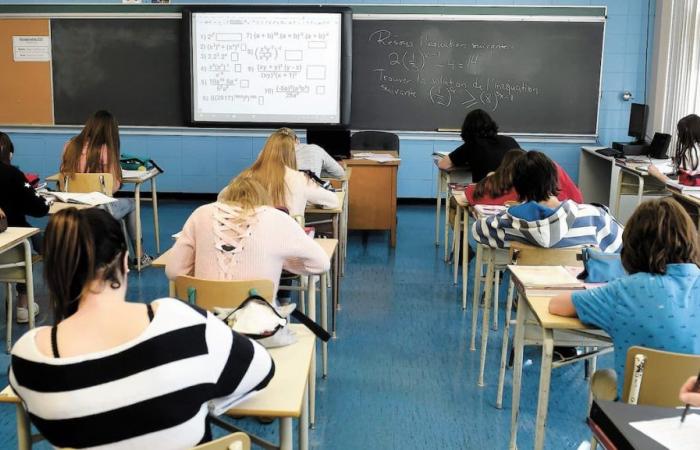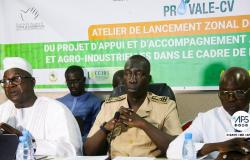The ministerial mathematics test in secondary four caused many teachers to react last week: there was a question almost identical to that of a previous version, authorized for classroom practice, which could increase “notably legitimate” student results, teachers fear.
The Ministry of Education, for its part, assures that this question is entirely valid.
To help students prepare for the June ministerial examination, the ministry authorizes teachers to use certain versions from previous years. This year, the 2018 and 2019 versions of the regular mathematics exam (Culture, society and technology) could be used in secondary four classes, as an exam simulation.
But teachers were very surprised to find that one of the questions on last Thursday’s exam was almost identical to the 2018 exam they had seen in class, except for a few words. The numbers were different, but the mathematical reasoning to be used was exactly the same, they say.
“This question was clearly given,” says Sylvain Duclos, who has taught secondary school mathematics for around twenty years.
Young people even contacted him after the exam to tell him that they had the full answer written on their cheat sheet, a sheet written by the student that can be consulted during the exam.
“A review of this importance has repercussions. This increases student results in an illicit way,” adds Mr. Duclos.
Other teachers, who however requested anonymity, made the same observation. “Already it’s a predictable exam, if you also have the same questions as those authorized for classroom practice, that’s going too far,” says another experienced mathematics teacher.
An exam that makes you react
The situation is causing teachers to react “a lot”, notes Mélanie Tremblay, professor of mathematics education at the University of Quebec in Rimouski (UQAR).
This expert, who has been denouncing for years the overly predictable nature of this test, believes that the ministry has gone too far this time by using a question almost identical to that used in class to prepare students.
“We have just reached a new peak,” she says.
For its part, the Ministry of Education assures that this practice is entirely valid. “This in no way affects the validity of the ministerial tests,” indicates a spokesperson, Bryan St-Louis.
Even if the context of the two questions and the concept assessed are the same, “the parameters of the functions in the question differ as well as all the data that the student must process,” he adds.
Mme Tremblay is not of the same opinion. “We dressed the question differently, but it’s the same thing,” she says. When a test becomes too predictable, it no longer measures what it says it measures.”
The Ministry of Education specifies for its part that the use of the 2018 and 2019 versions of the test was authorized during in-class preparation since these tests were the most recent to cover the entire curriculum.
Do you have any information to share with us about this story?
Write to us at or call us directly at 1 800-63SCOOP.






